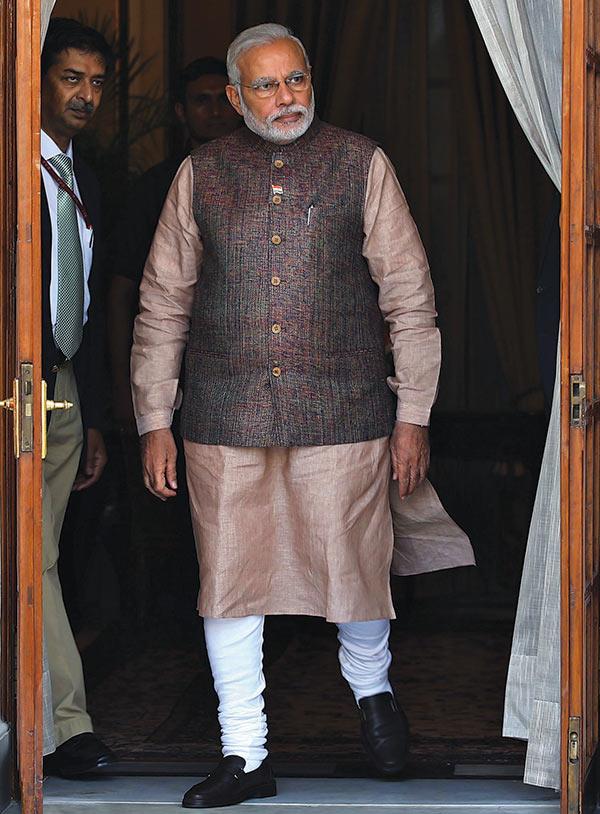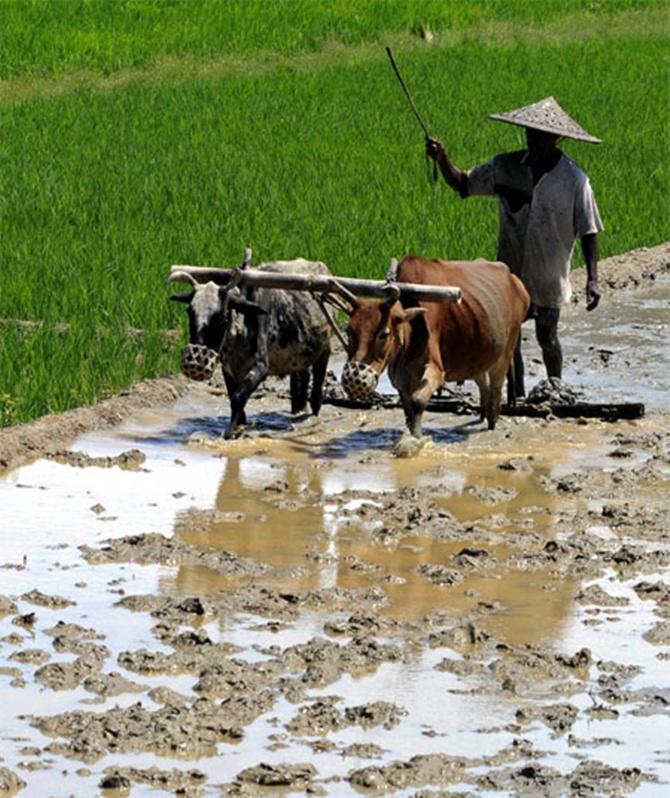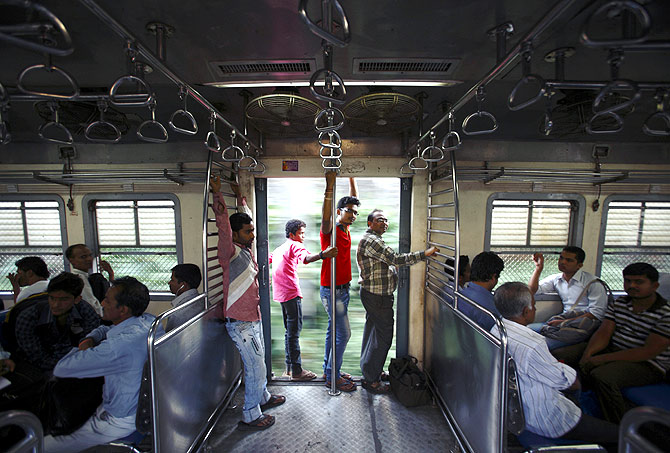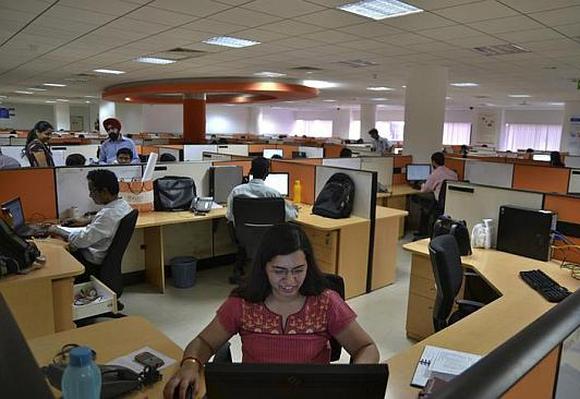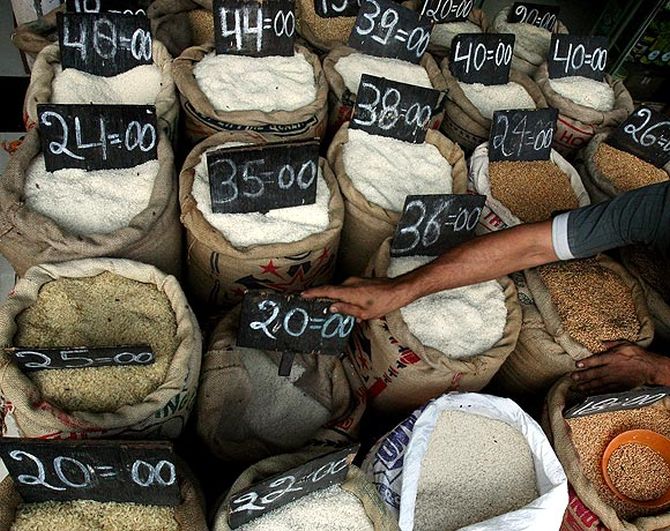 | « Back to article | Print this article |
Modi govt fails to impress in the first two months
Those who believed that a BJP-led government at the Centre would tear apart all that its predecessor government, led by the UPA, had initiated during its 10-year-long tenure are rudely shocked by what has happened in the first two months of the Modi government.
The first couple of months for a new government are always crucial as this is the time when it lays down its broad framework of policies and their thrust areas.
A government that fails to make the right impact in this period often regrets its lack of focus or urgency later during its tenure.
The Narendra Modi government was sworn in on May 26.
Two months will be over by the end of this week. This, therefore, is a good time to assess what the key signals on governance the new regime has sent out in the last few weeks.
Please click NEXT for more...
Modi govt fails to impress in the first two months
The Modi government has so far taken a host of important decisions, including the unveiling of the Union Budget for 2014-15 on July 10.
There is no clear pattern that characterises these decisions or policy initiatives.
But a close study would show that they reveal two broad policy signals that are important pointers to the Modi government's thinking on how it plans to further its governance agenda in the days to come.
One, there is reluctance to go in for big-bang reforms.
Expectations from the Modi government that it would unleash major economic reforms within weeks of its formation were high.
Please click NEXT for more...
Modi govt fails to impress in the first two months
None of that really happened.
Compare what happened in the Modi government's first two months with what the Narasimha Rao government achieved in the same period in 1991 and you will notice the stark differences.
Manmohan Singh's Budget in 1991 and the economic policy changes announced around that time including the industrial policy liberalisation brought about dramatic changes in the country's economic policy landscape.
The Modi government was expected to bring about significant changes in the land acquisition law, the subsidy regime and labour policy.
None of that has happened so far, although suggestions of changes in the land acquisition law have been made and a new expenditure reforms commission is expected to make recommendations on the subsidy regime before the end of the current financial year.
Please click NEXT for more...
Modi govt fails to impress in the first two months
Perhaps comparing the Modi government with the one led by P V Narasimha Rao is wrong.
The government in 1991 was faced with a major economic crisis and had no option other than ushering in those bold policy changes.
In contrast, the economy at present is certainly in better shape, though its challenges are quite daunting and any negligence could land it in deeper trouble.
Even then, it could be argued that the compulsions that forced the Narasimha Rao government to take those bold steps are not a factor for the Modi government.
Yet it is puzzling that the Modi government should be reluctant to usher in big-bang reforms.
One reason could be that the government's leadership has come round to the view that the country is simply incapable of absorbing the political impact of any major change in one go.
Please click NEXT for more...
Modi govt fails to impress in the first two months
It is important to note that this realisation seems to have dawned on the leadership in spite of the Bharatiya Janata Party (BJP)'s comfortable majority in the Lok Sabha.
The political climate in this country has perhaps convinced the party that only incremental reforms administered in small doses can work.
Anything radical or fundamental is likely to provoke a political backlash and stymie the entire initiative.
The Modi government's experiments with a steep railway fare and freight rate hike in June were perhaps an eye-opener for the party's leadership.
There were protests from within the party and the fare hike had to be partially rolled back.
A similar fate awaited the idea of privatisation.
The first Budget of the Modi government made it clear that there could be disinvestment of government shares in public sector undertakings, but there would be no privatisation as such.
For instance, banks would be allowed to divest their government stake, but that dilution would never reduce the government share below 51 per cent.
Please click NEXT for more...
Modi govt fails to impress in the first two months
The second policy signal from the Modi government's first two months is that there would be no turning away from the United Progressive Alliance (UPA)'s schemes.
Those who believed that a BJP-led government at the Centre would tear apart all that its predecessor government, led by the UPA, had initiated during its 10-year-long tenure are rudely shocked by what has happened in the first two months of the Modi government.
Not even one of the key flagship schemes started and promoted by the UPA has been either diluted or scrapped.
Instead, they have been continued and even adequately funded.
The Mahatma Gandhi National Rural Employment Guarantee Scheme or MGNREGS is intact with necessary funding provided for the current year.
Please click NEXT for more...
Modi govt fails to impress in the first two months
So is the newly legislated National Food Security Act, which is chiefly responsible for the food subsidy bill going up by 25 per cent to around Rs 1.2 lakh crore(Rs 1.2 trillion) in the current financial year.
Remember that the Modi government's Budget for 2014-15 has provided the funds to run the scheme this year.
Not just the schemes that entitle the poor to subsidised foodgrain or jobs, even the Aadhaar scheme run by the Unique Identification Authority of India, launched by the UPA to facilitate cash transfer of subsidies to the poor apart from giving them proof of identity, has got a fresh lease of life under the Modi government.
Both the reluctance to go in for big-bang reforms and the decision to continue with the UPA's flagship schemes show a different aspect of the evolving face of India's politics and its mainline political parties.
That even the BJP has had to change and evolve as a party in power shows the distance it has covered since it was born more than three decades ago.
